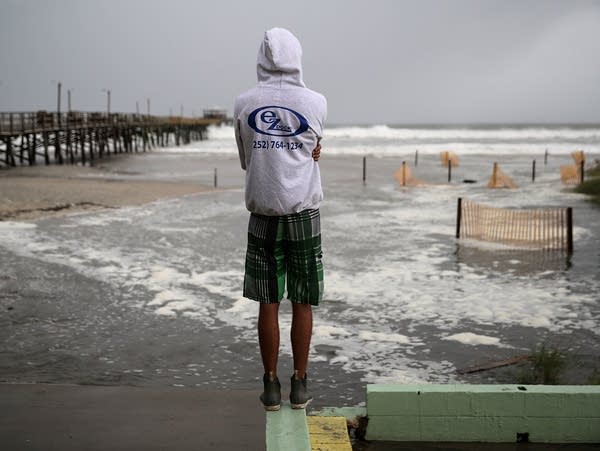Ocean water isn't mixing like it used to, and that could have grave consequences

Go Deeper.
Create an account or log in to save stories.
Like this?
Thanks for liking this story! We have added it to a list of your favorite stories.
A study out this week in the journal Nature Climate Change finds oceans are becoming more stratified, and that could have grave consequences for the health of marine animals and humans alike.
What is ocean stratification? Co-author and University of St. Thomas professor John Abraham said you’ve probably experienced something similar if you’ve gone swimming in a lake.
“When you jump into a lake, the water near the surface is warmer and the water near the bottom is colder. And what’s happening is the lake forms layers of water that tend not to move, they tend not to rise and fall in the lake, and that process is stratification,” Abraham said. “That same process occurs in a major way in the ocean.”
Both lakes and oceans regularly mix their water layers, bringing oxygen, nutrients and cooler temperatures up from the depths. But Abraham and his colleagues found that’s not happening as often in the ocean. Climate change is making surface water even warmer, and that makes it more buoyant, or unable to sink and mix with deeper water.
Turn Up Your Support
MPR News helps you turn down the noise and build shared understanding. Turn up your support for this public resource and keep trusted journalism accessible to all.
Abraham said the long-term effect of this could be a less hospitable environment for marine life near the surface and wilder weather for humans.
Warm surface water creates warm, moist air — the perfect breeding ground for hurricanes. And less ocean mixing could result in significant changes to ocean currents, Abraham said.
“If you’ve ever wondered, ‘Why is England, which is at about our latitude, so much warmer in the winter than we are?” it’s all due to the ocean,” Abraham said. “What happens is warm waters in the tropics flow up to Europe and they keep their heat. And that really makes the weather in Europe very, very mild.
“As we warm the planet, we are putting at risk this natural ocean current,” he continued. “And if we go too far, we could shut off that current and that would end up changing weather all across the planet, especially in Europe.”
Abraham spoke with MPR News chief meteorologist and Climate Cast host Paul Huttner. Click play on the audio player above to hear it, or subscribe to the Climate Cast podcast wherever you get your podcasts.


